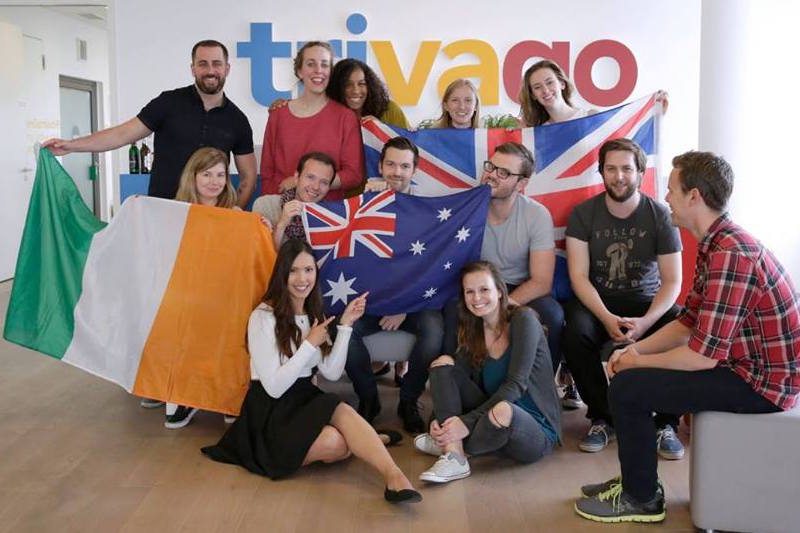Skift Take
Expedia isn't overlooking its core online travel agency brands such as Expedia.com and Hotels.com, but Trivago and HomeAway are clearly rising stars. Trivago hardly ever saw a TV commercial it didn't like but increased profits in Q1, and HomeAway is in the midst of a multi-year digital-booking transition.
Trivago, Egencia and HomeAway are clearly the up-and-coming business units within the Expedia Inc. arsenal and officials didn’t try to contain their exuberance for the brands’ performance and projected trajectories.
Speaking during Expedia’s first quarter earnings call Thursday, CEO Dara Khosrowshahi said paid channels — meaning Google, Facebook and metasearch, for example — are increasing their share of the travel audience, and metasearch is the fastest-growing part of the mix.
This metasearch growth positions Expedia well because its Trivago unit, pumped up in part by monies that various Expedia brands and the Priceline Group are spending on marketing within the hotel-search platform, is the fastest growing metasearch company, Khosrowshahi maintained.
For the first quarter, Trivago, which went public late last year, saw its adjusted EBITDA (earnings before interest, tax, depreciation and amortization) jump 169 percent to $21 million on revenue of $286 million, a 62 percent rise.
This is Egencia’s Moment, Officials Say
Egencia, which is Expedia’s corporate travel business, is at an inflection point after several years of focusing on integrating acquisitions such as Via Travel (2012) and Orbitz for Business (2015), and can now double-down on its technology advantage because competitors haven’t transitioned online fast enough and have a technology disadvantage, Khosrowshahi argued.
When Expedia sees an advantage like that, he added, it likes to dig in, and the Egencia team is focusing on improving on core systems to globalize and modernize.
Egencia saw its adjusted EBITDA rise 76 percent in the first quarter as revenue ticked up 12 percent to $123 million.
Clearly, Trivago, Egencia and HomeAway, too, are still smallish but growing players within the Expedia portfolio, where the core online travel agency business, including Expedia.com, Hotels.com, Orbitz, Travelocity and Wotif, generated $1.7 billion in first quarter revenue, a 10 percent increase, and notched adjusted EBITDA of $306 million, an increase 5 percent.
Carrot and stick at Homeaway
Expedia’s earnings call was dominated by a discussion of vacation rental unit HomeAway, acquired in late 2015.
The focus at HomeAway this year is to increase the ranks of its online bookable properties, which number roughly 1.4 million and account for about 85 percent of its inventory mix. Making them instantly bookable, without guests being subject to a 24-hour waiting period to get a confirmed reservation, is on the to-do list but it isn’t the overriding priority this year, officials said.
There are about 35,000 HomeAway properties that are currently bookable on other Expedia sites but migrating more over in isn’t the priority this year, either.
One thing slowing the pace of the transition is that HomeAway generates vacation rental from a mix of commissions from the owners and fees paid by travelers while Expedia is set up to collect just commissions. Khosrowshahi hinted that Expedia might be testing a traveler fee for vacation rentals on Expedia sites to be consistent with how HomeAway does business.
Instead of making instant booking of vacation rentals a priority in 2017, Expedia CFO Mark Okerstrom said, HomeAway staff will be focusing on increasing and making more efficient its search engine marketing, improving the customer experience, and will be using the “carrot and stick” approach in a variety of ways to ensure that owners and property managers keep the booking process on the HomeAway platform and do not take it offline, cutting Expedia/HomeAway out of the transaction.
Okerstrom didn’t provide much detail on what the carrots and sticks would be. But Khosrowshahi said HomeAway hasn’t done a good job of communicating to owners and property managers how they can improve their presence in the sort order, or listing display, on HomeAway sites.
Khosrowshahi said having photos and reviews of the property so potential guests know what to expect when they arrive, as well as making properties bookable online, are elements considered when the algorithms determine where a property gets displayed on a website page.
For the first quarter, HomeAway’s adjusted EBITDA fell 66 percent to $6 million as it increased its marketing spend and invested in technology, among other factors. Revenue rose 30 percent to $185 million, and its room nights booked — the first time Expedia is publicizing this metric for HomeAway — climbed 18 percent year over year.
Expedia Inc. as a whole in the first quarter saw its net loss increase 21 percent to $86 million as revenue increased 15 percent to nearly $2.2billion. Expedia beat consensus expectations on revenue by $50 million, but fell short $0.02 on earnings per share, which registered at $0.05
New Types of Packages
In other news, Khosrowshahi said Expedia will be testing improving its vacation package business in unconventional ways.
Today, he said, most customers don’t visit Expedia seeking a vacation package, but Expedia will start presenting them with options to tack on additional elements to their trip as if they were collecting things in their shopping cart at various points in time, and not just when they make an initial booking.
The Daily Newsletter
Our daily coverage of the global travel industry. Written by editors and analysts from across Skift’s brands.
Have a confidential tip for Skift? Get in touch
Tags: earnings, egencia, expedia, homeaway, trivago
Photo credit: Expedia is looking to Trivago to spur more international growth. Trivago employees hail from more than 50 countries and pictured is a group of them on December 16, 2016. Trivago
